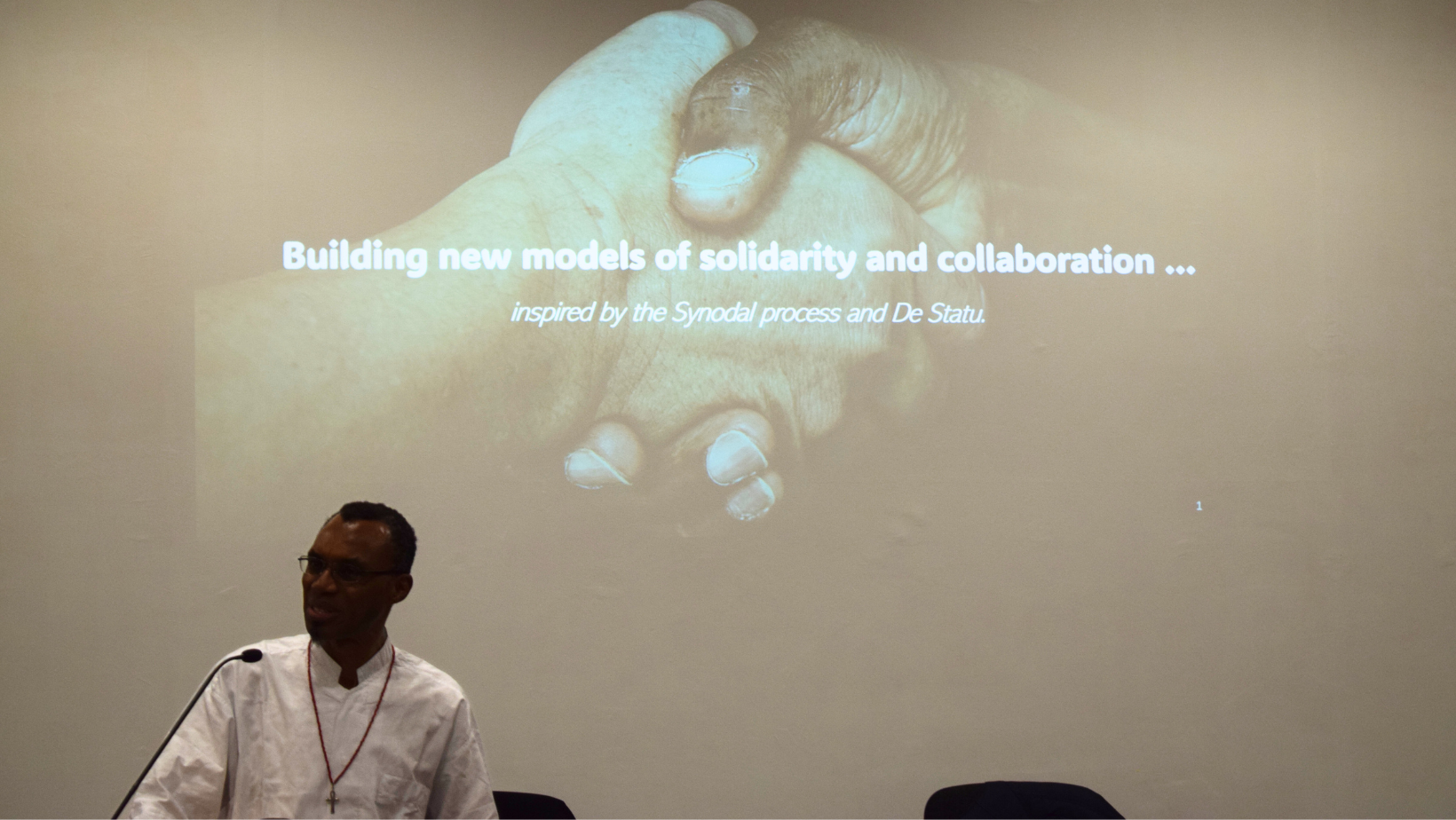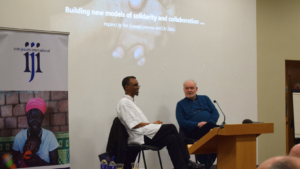
On a wet and blustery ‘Spring’ evening, Father Orobator gave an intimate talk which left listeners with food for thought, reflecting on the role everyone has as people of God in shaping how we can build a future founded on solidarity, peace and action mirroring the good Samaritan.
Renowned for his perceptive thoughts on the future of the Jesuits, of international development and solidarity, his evening talk on the 4th March was testament to his insightful reflection on the Church and where it should be heading in the future.
At the core of his talk, Orobator spoke of collaboration, real collaboration, which wasn’t about ‘taking space’ but active listening where everyone is of value, not as elitist teachers but learners. As he explained, ‘the call to collaboration, solidarity and synodality are not easy virtues but we can make an effort to embrace the mentality that understands that we don’t have all the answers’ and that through reflection and collaboration we can learn and discern from each other.
With a beautiful metaphor, Orobator talked about the chief totems of Western Africa, the Manja tribe he explained did not have totems of fierce lions or warriors with spears, instead the humble rabbit is the chief totem chosen for its big ears – big ears that can listen to the thoughts and perspectives of all community members.
Orobator calls for the Church to be humble rabbits and to realise a new vision of synodality that is more than simply hearing but “is a mutual listening in which everyone has something to learn. The faithful people, the college of bishops, the Bishop of Rome: all listening to each other, and all listening to the Holy Spirit, the Spirit of truth”.

Fr Orobator & Fr John Guiney
Listening and collaboration is of course not going to be easy, but Orobator spoke of these necessary tensions, these difficult conversations, and the need to grapple with issues and address them. On this note, he spoke potently of the role of women reflecting on the day-to-day reality of the role and actions of women within the church despite non-recognition and how to deny or ignore these voices or perspectives would be unwise.
Quoting Cardinal Jean Claude Hollerich SJ, Orobator spoke of welcoming these tensions, these ‘processes’ which make us learners, reflectors, and listeners, saying: “we are not afraid of tensions. Tensions are part of the process, as long as we consider ourselves to be brothers and sisters, walking together”.
The takeaway message from the talk, for me, stems from Fratelli tutt, which Orobator champions seeing solidarity and collaboration as processes where: “Goodness, together with love, justice and solidarity, are not achieved once and for all; they have to be realized each day” (Fratelli tutti, 11).
Solidarity, then is a constant process of listening, reflection, and learning and that our mission in shaping a peaceful, inclusive and ‘new humanity’ should take form by way of not simply doing good as a passerby, like the good Samaritan, but deliberately being on the path, working with others, to make that positive difference.
Fr Orobator is the dean of the Jesuit School of Theology of Santa Clara University. A powerful public speaker, he is widely known for his scholarship and talks on the study of the Church as well as specific focus on ethics, human rights, and human dignity.
Previously provincial superior of the Jesuits of the Eastern Africa Province, Orobator serves on the board of directors of Theological Studies and the board of directors of Georgetown University.

